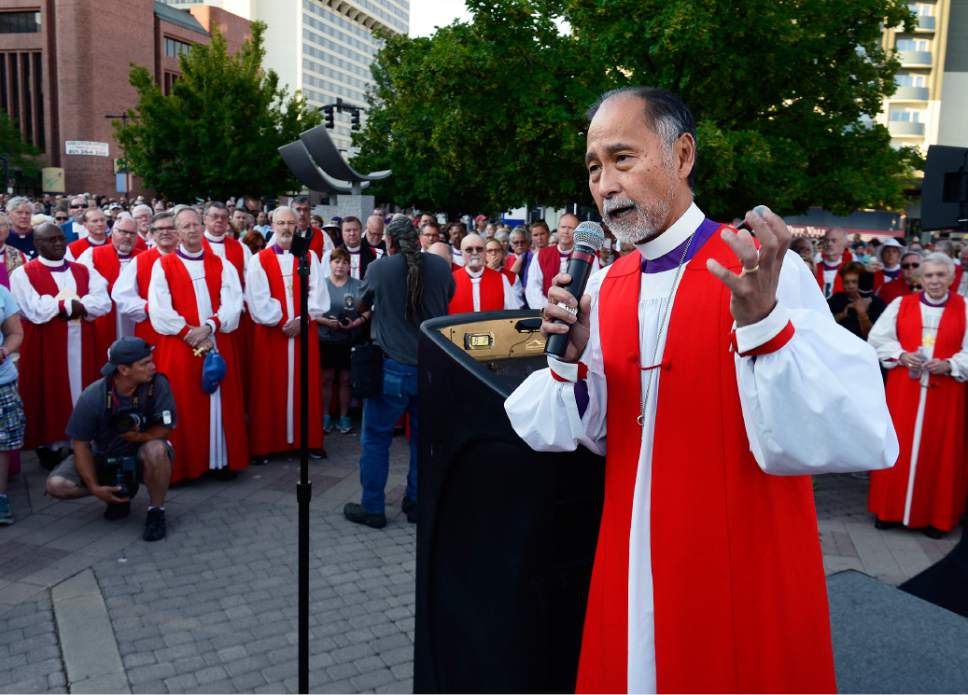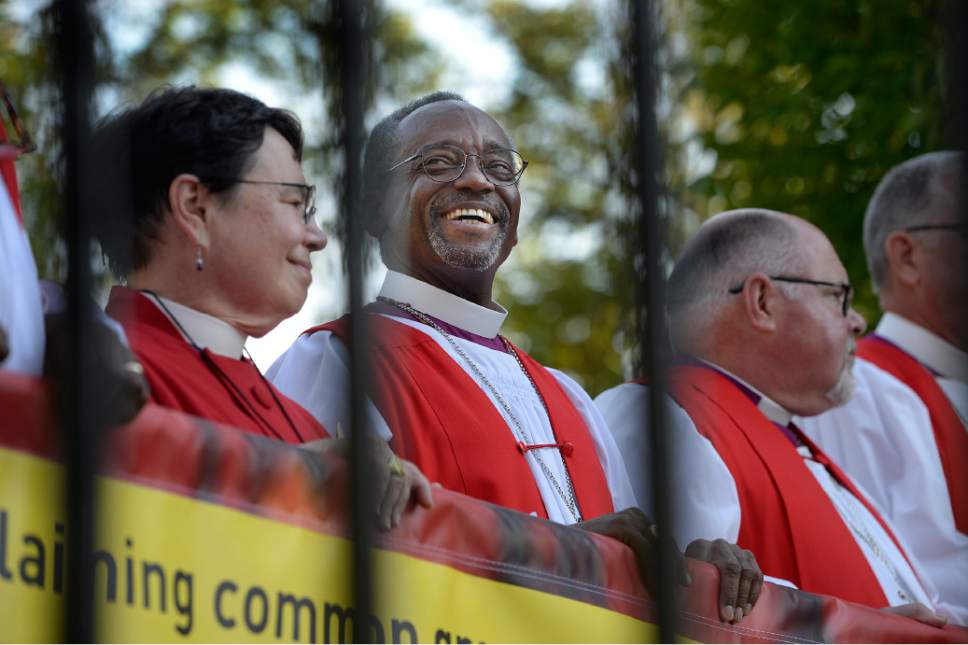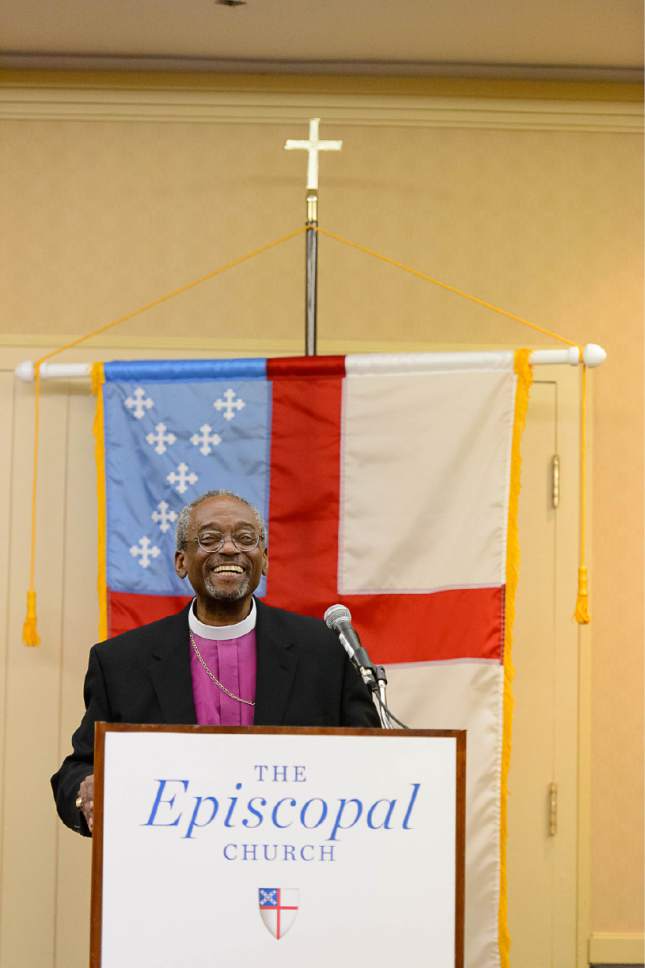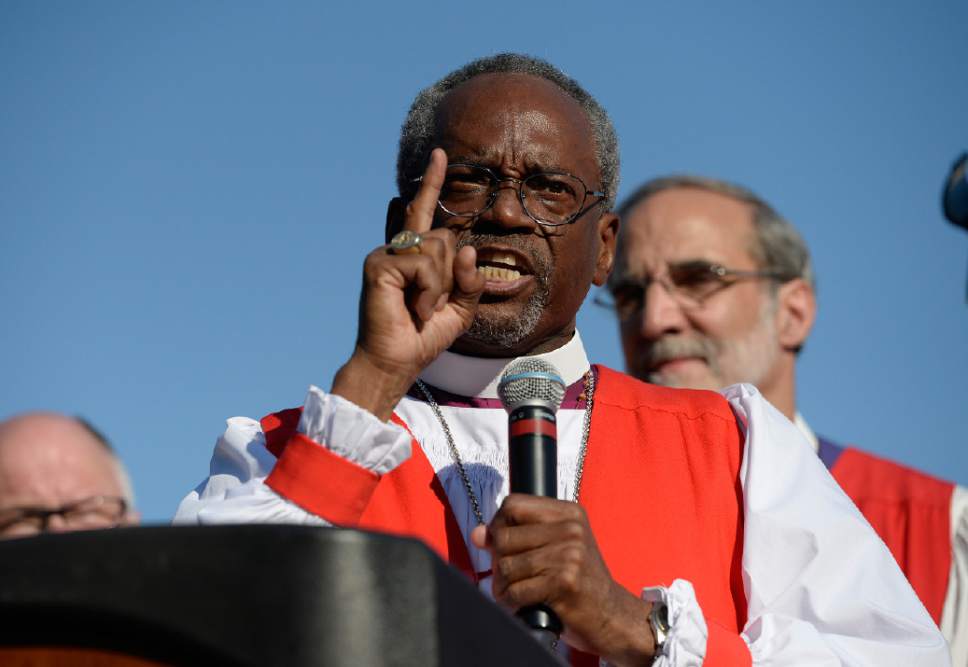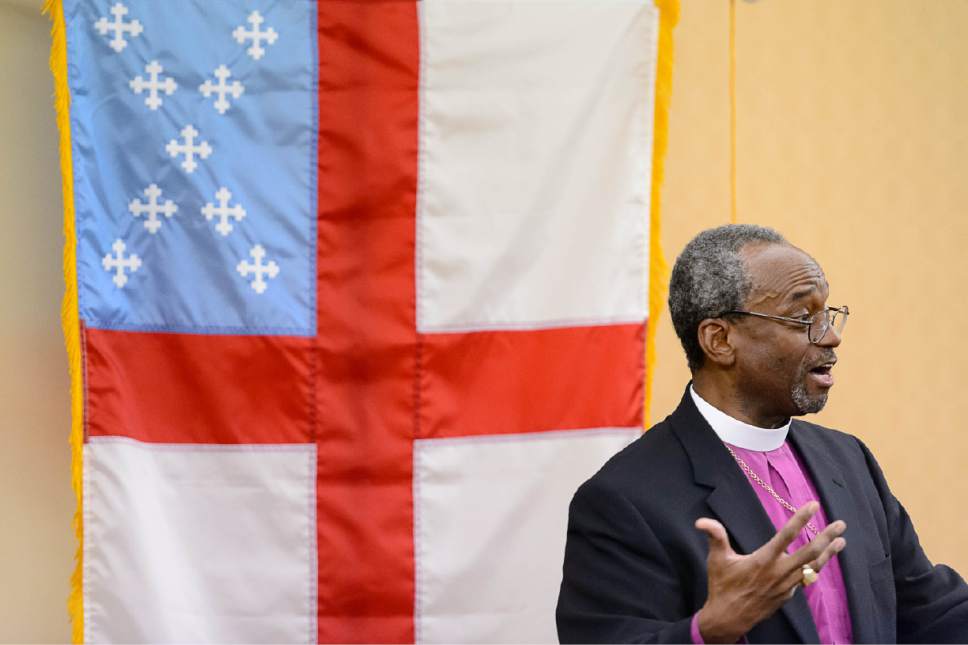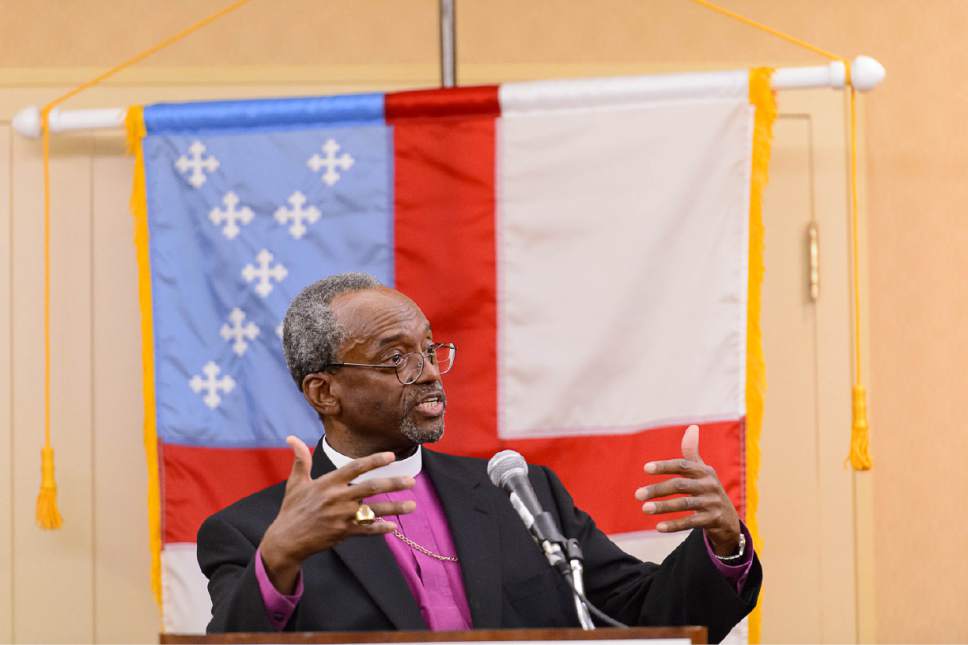This is an archived article that was published on sltrib.com in 2017, and information in the article may be outdated. It is provided only for personal research purposes and may not be reprinted.
It has been a rare and long journey for Michael Bruce Curry, beginning with his mother's improbable decision, as a woman of color, to embrace the then-predominantly white Episcopal Church.
Enamored with the writings of Anglican C.S. Lewis, Curry's mother not only brought him along, but also Curry's father, a Baptist pastor. It was, in segregated Buffalo, N.Y., during the 1950s and '60s, an unusual transition, to say the least.
The younger Curry went on to be ordained as an Episcopal priest in 1978, laboring in Eastern and Southern parishes while earning a reputation for pastoral care, ecumenical outreach and service to the inner-city poor.
In 2000, he rose to bishop of the Episcopal Diocese of North Carolina and became an advocate on social-justice issues, including immigration policy and marriage equality. Then, in June 2015, during the church's national convention in Salt Lake City, Curry was elected the first black president of the Episcopal Church (which includes the U.S. and 16 other countries).
Nearly two years later, the 64-year-old cleric returns to Utah this week as an honored guest and speaker during the annual diocesan convention marking the church's 150th anniversary in Utah.
In a question-and-answer session, Curry discussed a variety of issues facing the Episcopal Church. Here, in part, are his responses.
Q • What were your impressions of Utah in 2015 when you were elected presiding bishop during the church's general convention in Salt Lake City and of what the diocese here has done since?
I've been to Salt Lake City several times, for meetings and church-related things. But [in 2015] at the convention, what impressed me the most was the level of ecumenical work by the Latter-day Saints, Episcopal and Catholic churches. ... They all do good work with homelessness and other issues. Salt Lake City is a wonderful community, a nice place to go to visit and have a convention. .... We were so graciously received and welcomed.
Q • On Jan. 14, 2016, the Anglican Communion suspended the Episcopal Church's voting and decision-making roles within the global body for three years, primarily due to the [U.S. church's] clergy officiating at same-sex marriages. Where are you in your relationship today?
We are in good and full relationship and communion. ... That never changed. [The Anglican Communion's action] asked that the Episcopal Church not represent the Anglican Communion on ecumenical bodies. ... We were asked not to make decisions on matters of policy, or on how the church is governed for a period of three years. There are differences [between the two bodies], but the Anglican Communion is working together on moving forward . . . in the ministry of Jesus Christ to help and heal a hurting world. The mission we've been given is bigger than any divisions there may be among us.
Q • If the Anglican Communion continues to insist on marriage solely being between a man and a woman, can the Episcopal Church remain affiliated with the body? Indeed, has the church effectively evolved into something different, something more than Anglican?
No. The Episcopal Church is a constituent member of the Anglican Communion. We have been and will continue to be [because] that's who we are, and we're committed to that. There's been no discussion otherwise.
Q • Has the same rift shown itself within the U.S. church since the 2003 consecration of Gene Robinson as the Episcopal Church's first openly gay bishop?
[At the time of Robinson's consecration] I was bishop of the Diocese of North Carolina, one of the seven or eight largest dioceses [in the church] and probably fairly representative [of the church as a whole]. I gathered our clergy after consecration of Bishop Robinson. ... We knew that some people had left and I asked them to give me an estimate [of how many]. I'm here to tell you that in the Diocese of North Carolina [it was] 800 out of 49,000 [members], and one congregation out of 120. I think that pattern was fairly typical [for the church].
Q • How will the church address its receding numbers (1.77 million members in 2015, down from 2.2 million in 2005)?
Mainline churches, and that includes the Episcopal Church, have had declining membership [and] some of that due to the emerging secular trend in American society. ... It is significant, and among young people [studies show] upwards of 35 percent ... identify themselves as having no religious affiliation. I've invited our church to engage in the kind of evangelism that [helps] people find a way into a healthy, loving, liberating relationship with God. ... I believe Jesus Christ can help us do that [and that] also helps people have a healthy, loving, liberating relationship with others.
Q • The church has been at the forefront of other social-justice and civil rights issues as well. Immigration and aiding the homeless are a couple of those. What more can the church do?
We need something that looks more like God's dream and less than a human nightmare. The secularizing trend is a real call to trying to help the world. ... [The Episcopal Church is] focused on and making a real commitment to three primary mission imperatives, if you will: First, evangelism ... second, to engage deeply in the work of racial reconciliation [and] third ... to really be involved in the work of caring for God's creation. ... We [also] continue our work of hoping and praying, [along with] other Christians and people of goodwill, to support appropriate immigration reform and refugee resettlement. I [have] met with refugees [and found] most of them are women and children ... people who are fleeing war [and] coming to America looking to see what we call the American dream, [a place] where they can raise their children to have a life something like what God would want them to have.
Twitter: @remims


